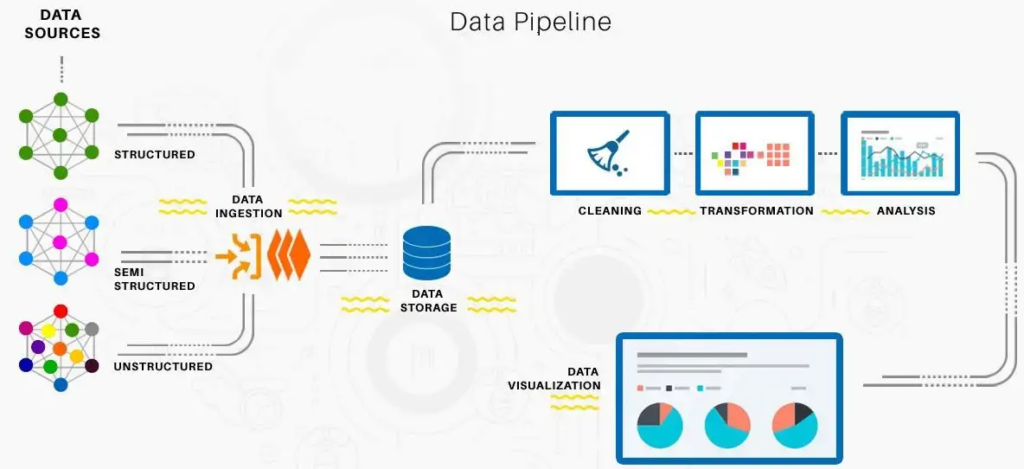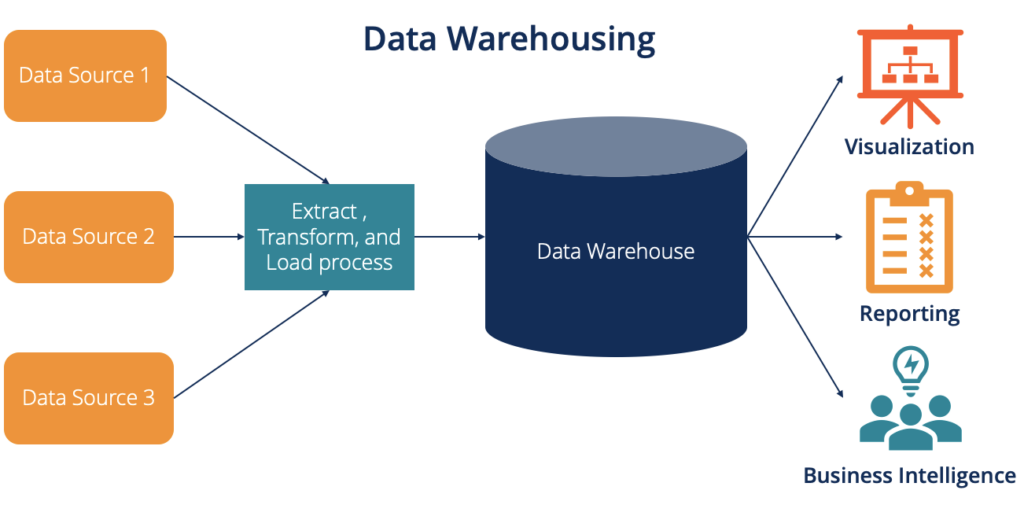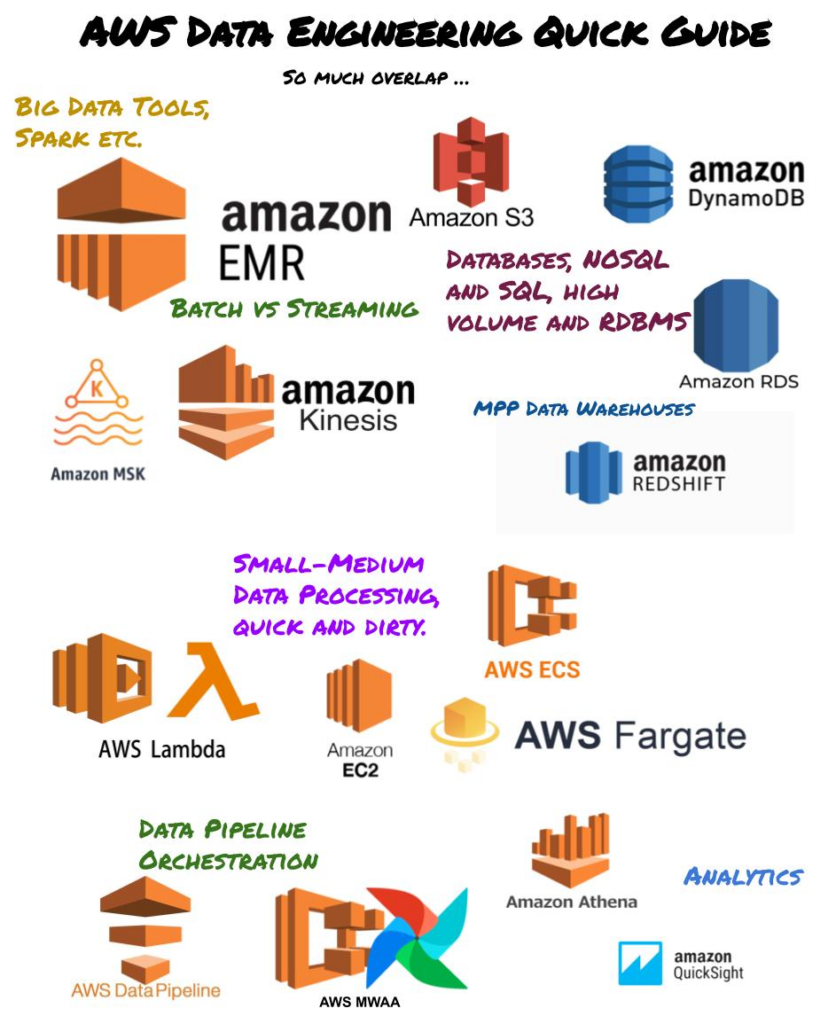Uncategorized
Essential Skills For A Data Engineer
The amount of data has drastically increased in recent years, especially with the rise of cloud computing. Statista estimates the global data creation to reach 180 zettabytes (180 trillion gigabytes) by 2025. This implies that there’ll be a huge boost in data consumption over the next few years. But what does this mean for organisations and individuals?
With the extensive quantity of data at their disposal, organisations need someone to process and analyse to make use of the data. This leads to the increasing demand for Data Engineers and turns this into one of the highest-paid jobs. So, what is Data Engineering and what are the skills required to strive in this field? This article will explore some of the most important skills to become a successful Data Engineer
For data to be helpful, it must be processed and analysed. Data Engineering is one of the most rapidly advancing fields, and professionals in this field are among the highest-paid. So, what is data engineering? What are the skills required? How do you become the best in this field? Let’s take a dive and discover the top ten Data Engineering skills needed to become a successful Data Engineer.
What Do Data Engineers Do?
In brief, Data Engineers turn raw data into understandable and useful information. Data Engineering encompasses a broad set of procedures to ensure the flow of data between servers and applications is not interrupted.

Image Credit: Mukesh Singh on medium.com
Data Engineering combines elements of Data Science and Software Engineering. The primary functions of a Data Engineer involve creating a pipeline of data to automate the ongoing process of collecting, preparing, transforming, and delivering data. Typically, a Data Engineer’s job includes:
- Raw data identification and acquisition
- Defining database schema
- Construction of data pipelines for data transfer
- Presenting processed data to data scientists for analysis
Skills That A Data Engineer Need
Basic Programming Skills
Programming is one of the requirements for a majority of data engineering positions. Basic coding knowledge can help Data Engineers in almost all IT-related tasks. The programming languages for data engineering are the ones that can help build and maintain data pipelines. The usually required languages are: Python, C and C++, Scala, Golang and Java.
Data Warehousing
Data Warehousing is the process of collecting data from various sources and organising it into an interpretable hierarchy. All the data becomes available for analysis in a centralised database, known as the data warehouse.Redshift, Azure, Panoply are some common data warehouses used in data engineering.

With the data warehousing skill, Data Engineers can leverage the ETL (Extract, Transform, Load) tools to enable the smooth transition of data between different analysis tools. This allows for data to be available faster for analysing by data scientists and business experts.
Operating Systems
To run applications and perform data engineering tasks, Data Engineers need to understand the background environment where these processes occur.
Knowledge of the underlying operating system can be useful for troubleshooting problems related to the task. Standard operating systems include LINUX, Solaris, Apple macOS, Microsoft Windows, and various UNIX distributions. Among engineers, LINUX is becoming popular for its efficiency in cloud computing.
Data analysis
Most employers expect data engineer candidates to have a strong understanding of analytics software, specifically Apache Hadoop-based solutions like MapReduce, Hive, Pig and HBase.
Apache Hadoop is an open-source framework that works as an all-in-one solution to help Data Engineers with the handling of big data. It is a collection of tools that allow parallel processing of big data sets using clusters of machines posing as a single unit.
Knowledge of Hadoop enables an engineer to create large-scale data processing applications useful for extracting analysable data.
Automation
Automation helps optimise the working process by reducing repetitive manual work. As more and more companies are moving towards cloud computing, automation has become a booming concept in the IT world. For Data Engineers, automation can help enhance the efficiency of their work by accelerating their processes at many levels.
Furthermore, remote working has led to the high demand for cloud computing. Therefore, cloud computing platforms like Amazon Web Services (AWS) and Microsoft Azure have brought in many products and services that can automate data engineering pipelines, which can benefit data engineers.

Image Credit: confessionsofadataguy.com
Machine Learning
Machine Learning is becoming all the more popular in 2022. Though machine learning is primarily the focus of data scientists, it is also an essential data engineering skill.
Building your knowledge of data modelling and statistical analysis can help you locate underlying data patterns, and get a better understanding of what data scientists require.
Communication Skill
No matter what role you have, communication skill is a must-have. As data engineers, you will need to work with data scientists and data architects. Moreover, you will have to share your findings and suggestions with peers or clients without technical backgrounds. Hence, communication is essential to understand and collaborate with other stakeholders with and without technical expertise.
Besides the skills mentioned above, there are other skills that are essential for not just data engineers but everyone such as time management, critical thinking, and business skills.
To Wrap Up
To sum it all up, being a Data Engineer demands a diverse skill set. These skills are important to cover all tasks from writing complex codes to managing databases and constructing cloud infrastructures. With the creation of more tools over time, this list will only get longer as Data Engineers will be required to master new tools and be skilled enough to choose the best tools for optimising their work.
Are you looking for a data engineer for your project? Fram^ can provide you with talented and experienced engineers with all the skills needed for your software. Tell us what you need via the form below.


